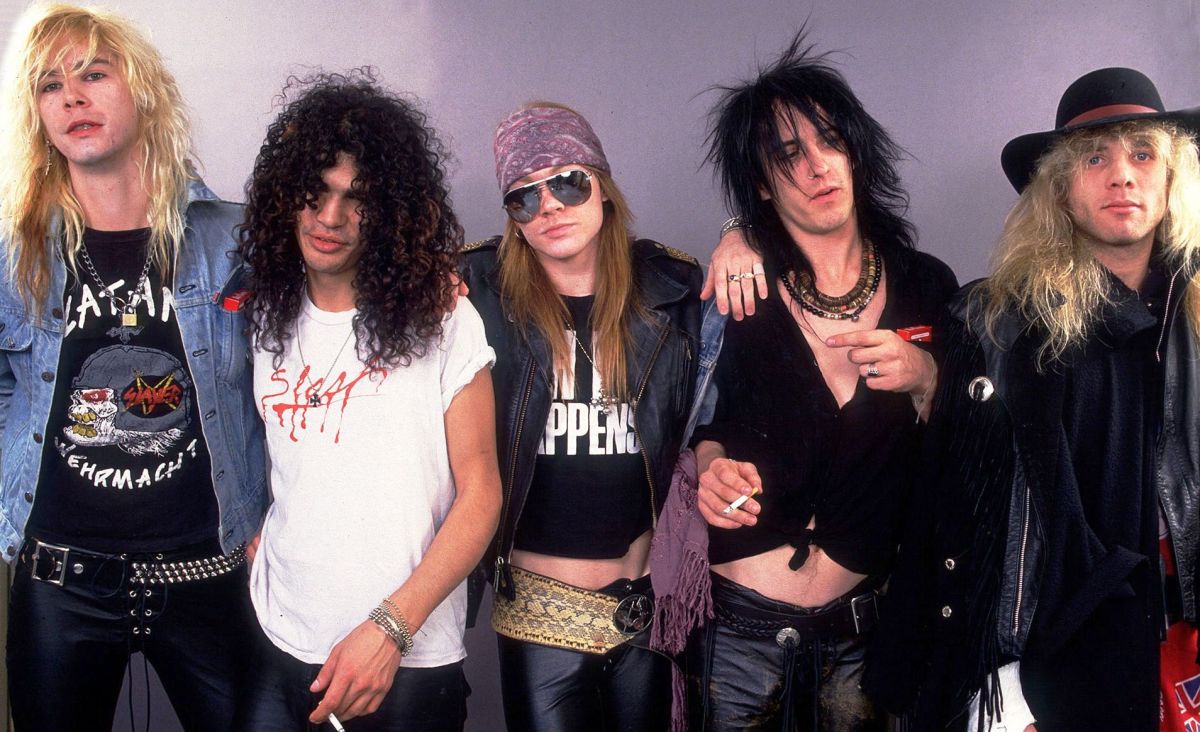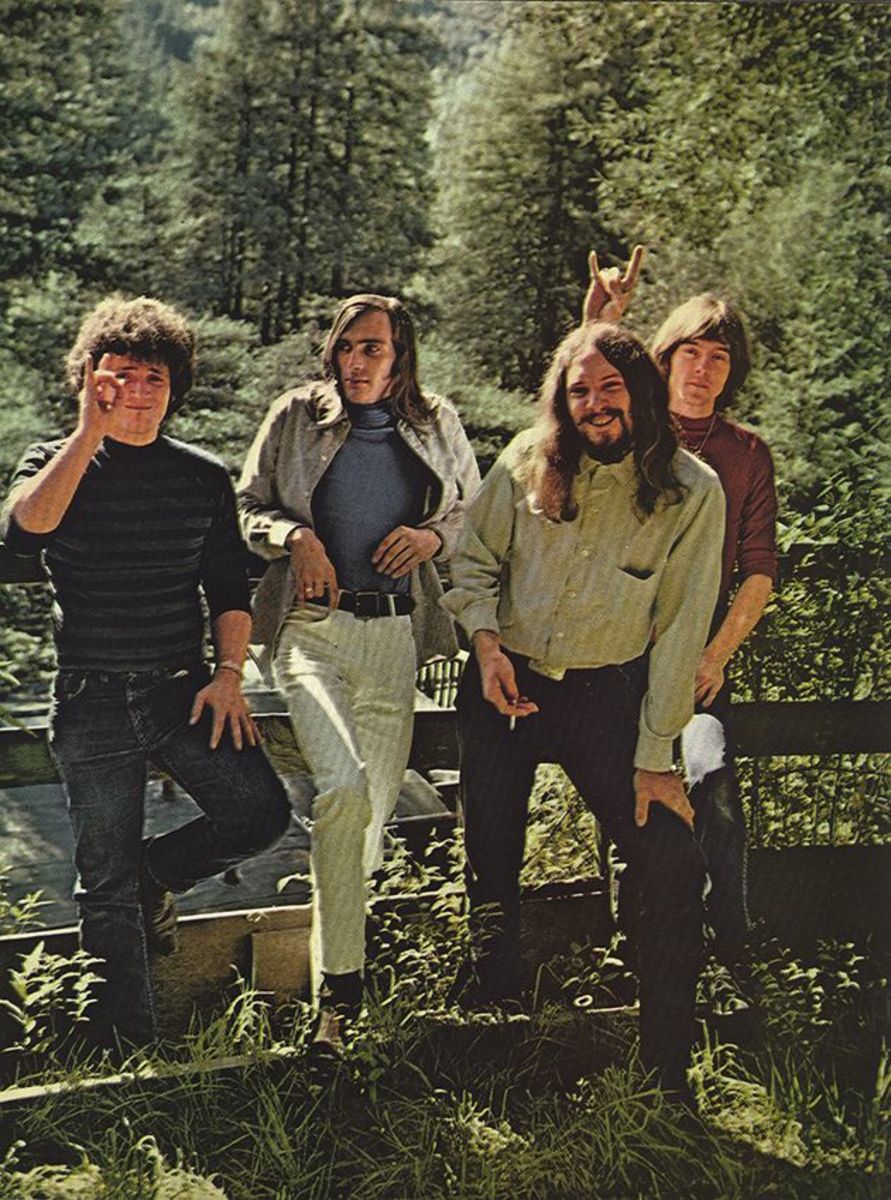Rock Editorial - Are Green Day The Who of today?
From One Generation To Another
I am well aware that the topic I have already outlined in the title may strike many of you as something of an oddity, but it's a thought that I had recently while pondering two of my favorite bands of all time. The wild and one time loudest band in the world, the band that served as both a precursor to punk and the inventors of the rock opera, The Who, and the California trio that began as perfect examples of sneering punk rock, an attitude, if not musical ideal, that they have largely maintained, and yet somehow managed to become one of the biggest bands in the world, Green Day. Green Day obviously draw influence from The Who, professing their love for classic rock, particularly of the British Invasion, on many occasions, but the more I thought about it, the more I thought these two bands have more in common then we might think at first. Whether you agree or not, I'm going to examine their similarities in this article and let you come to your own conclusions.
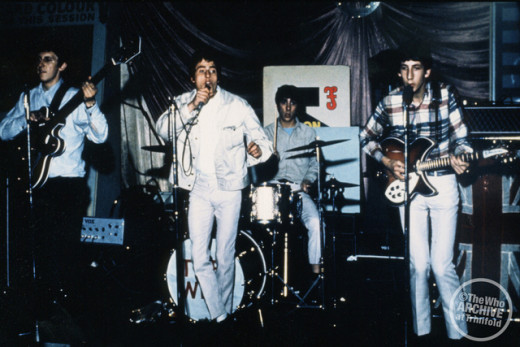
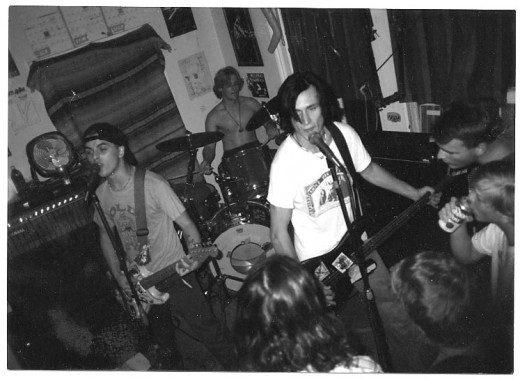
Simple Beginnings
The first comparison I can make between the two is where they began. Both nowadays are more known for their more musically and/or lyrically complex story driven albums, but both of them started rather simply. The Who started out making simple chord based rock music and releasing very catchy and simple singles that originally had them lumped in with the psychedelic rock movement of the mid to late 60s. Similarly, Green Day originally started out making the standard alt. punk music that would largely become associated with the early to mid 90s. Relatively simple and catchy punk songs that would eventually launch the pop-punk that would come later in the decade. Pretty much all of their albums from 39/Smooth to Insomniac fit in very easily with the likes of Blink 182 and Sum 41, just as The Who's early albums fit in very well with bands like The Doors and The Yardbirds.
Both also, despite making rather simple and catchy rock music, were seen as quite the forces to be reckoned with in their days. The Who were criticized constantly for their long hair, abrasive attitude, and unmatched volume and speed (their mission at the time being to be the loudest band ever heard). Green Day started out as part of a genre known for it's speed and volume, attitude, and short and/or weird hair. Both managed to use these factors to their advantage and strike a chord with the disenfranchised youths of their time.
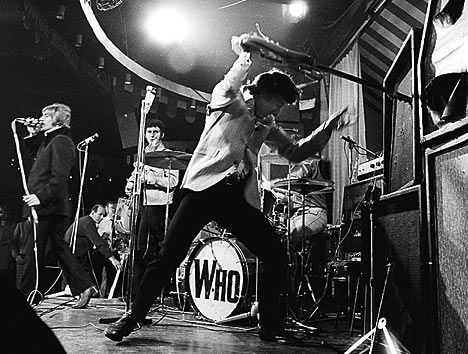

Broadening Horizons
The leaders of both bands, Pete Townshend and Billie Joe Armstrong respectively, started to want to branch out a bit more from the standard simple rock that they had started out with, while still retaining their attitude. The traces of this started emerging with The Who's album The Who Sell Out, a pseudo concept album, focusing on commercialism with strong touches of ironic humor and self parody seeing as the band were actually doing radio commercials at the time. Sprinkled with fake advertisements and PSAs, the album marked The Who as coming into their own entity and really standing apart from their contemporaries, and showing a change in the diversity and complexity of the band.
Green Day would begin making their changes with their album Nimrod, which starts with a base of punk rock, but expanded into other territories, displaying influences from folk music, surf rock and ska, as well as changing the lyrical themes from tales of youthful angst and frustration, to more mature themes such as maturing and fatherhood. All of these were trends that would be continued and even expanded upon with their next album Warning, an album on which there is rarely any musical similarity from one track to the next.


Legendary Status
The increasing intelligence and creativity being displayed by both bands is what eventually would lead to both of them making their marks on music history forever. The Who made the very ambitious move of putting forth the first ever rock opera: Tommy. What is truly remarkable about Tommy, is that despite the more artistic direction being taken by the band with it's writing, it is every bit as controversial and packs all of the punch of anything they recorded before, spinning tales of murder, mental trauma, drug and sexual abuse, and criticisms of organized religion into fast, energetic and unrelentingly catchy songs, spawned countless imitators and eventually culminated into a musical movie, starring such illustrious names as Tina Turner, Elton John and Jack Nicholson.
Green Day realized their claim to greatness with a rock opera as well, a dark tale following a troubled young man striking out into the big city, becoming a revolutionary assisted by a character created in his own mind, getting involved in all manner of sex and drugs before seeing it all come crashing down, in the end losing a part of himself in the process all with heavy shots toward the Bush administration. It is still amazing to me that an album this politically charged, that while still carrying many other musical ideas was largely a return to the straight forward punk rock sound of the band's earlier recordings, became the monster that it did, spawning countless imitators and eventually producing a full on broadway show that is still touring to this day.
Two concept albums, both rock operas, both dealing with troubled youth and mental problems and both taking shots at authority, and both works becoming one of if not the defining work of both artists and had an enormous cultural impact as well.


Back To Basics
Continuing the similarities, both bands continued the concept album trend, The Who with Who's Next which while not a rock opera in and of itself is the remnant of a rock opera that Pete Townshend had intended to put out after Tommy, and then producing a full other rock opera in the also legendary Quadrophenia. After the massive undertaking of Quadrophenia, The Who returned to their roots of writing singular songs for albums, though many still had similar themes. The Who by Numbers is an album dealing largely with Pete Townshend's personal struggles at the time, but is still a song by song release and not a massive story, and this trend continued with Who Are You, Face Dances, It's Hard, and most recently The Endless Wire.
Green Day also branched into concept work once again, this time bringing back the eclectic nature of many of their earlier releases with 21st Century Breakdown. Following that though, they too most recently have sought to return more to their punk based song by song album roots, though doing so in a very unique way. In the span of 4 months, three full albums of material were released, Uno, Dos, and Tre, all very much a return to their earlier sound, while still retaining some of the themes and diversity of their later work. Despite being part of the same relatively large undertaking and still retaining similar themes throughout, the story concept running through was absent.
Conclusion
This is by no means some definitive claim that I want more people to adhere to, it is simply a collection of observations I have made about both these bands in terms of their evolution as musical entities, cultural impacts, and the themes that have been carried by both of them. Personally, I also think that Green Day are a more than worthy band to be The Who of the modern age.
Feel free to leave your thoughts and ideas in the comments, as well as anything else you would like me to discuss.




